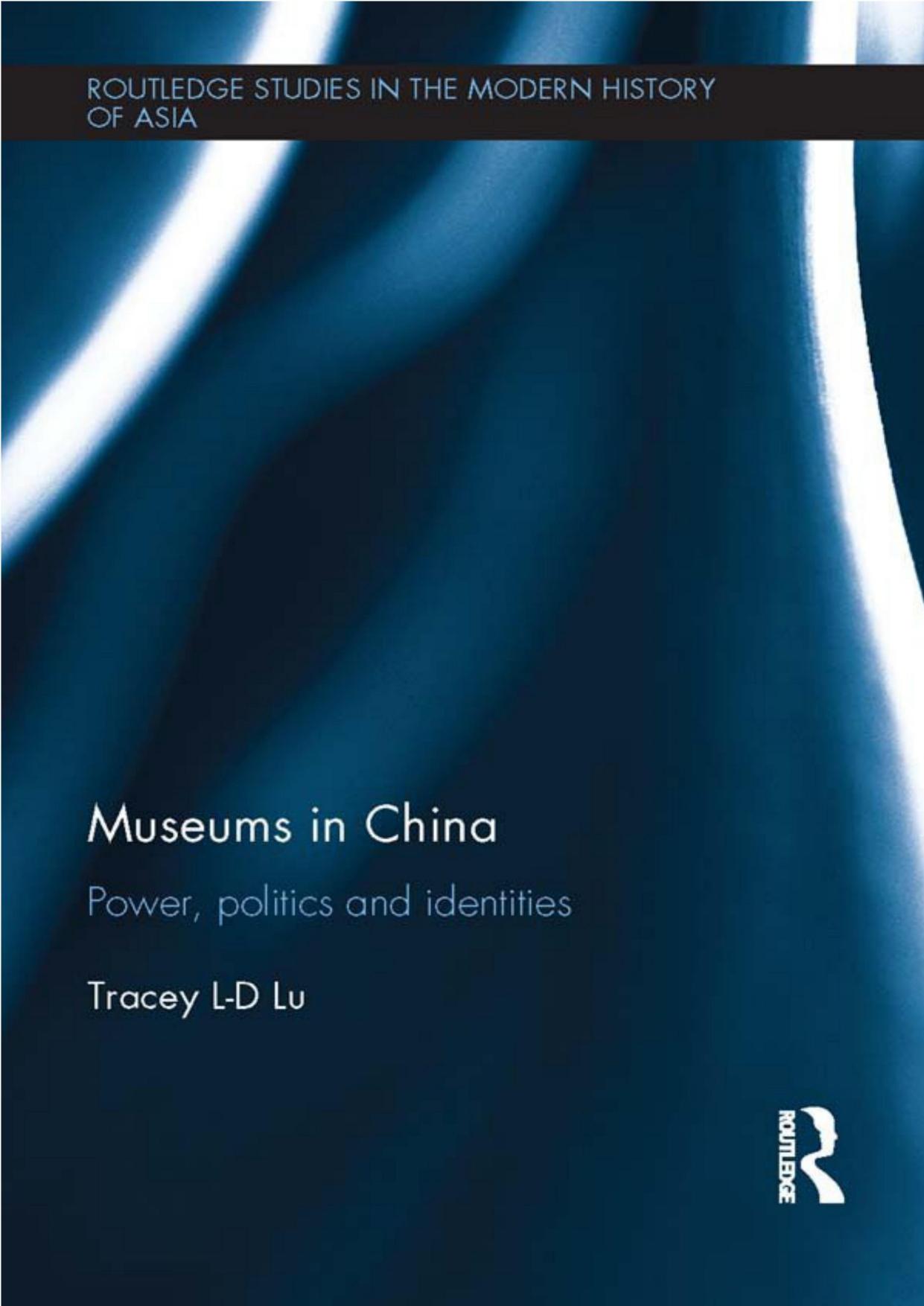Museums in China Power Politics and Identities 1st edition by Tracey Lu ISBN 1134081626 9781134081622
$70.00 Original price was: $70.00.$35.00Current price is: $35.00.
Instant download Museums in China Power Politics and Identities (Routledge Studies in the Administrator after payment
Museums in China Power Politics and Identities 1st edition by Tracey Lu – Ebook PDF Instant Download/Delivery: 1134081626, 9781134081622
Full download Museums in China Power Politics and Identities 1st edition after payment

Product details:
ISBN 10: 1134081626
ISBN 13: 9781134081622
Author: Tracey Lu
From the earliest museums established by Western missionaries in order to implement religious and political power, to the role they have played in the formation of the modern Chinese state, the origin and development of museums in mainland China differ significantly from those in the West. The occurrence of museums in mainland China in the late nineteenth century was primarily a result of internal and external conflicts, Westernization and colonialism, and as such they were never established solely for enjoyment and leisure. Using a historical and anthropological framework, this book provides a holistic and critical review on the establishment and development of museums in mainland China from 1840 to the present day, and shows how museums in China have been used by a wide range of social, political, and state actors for a number of economic, religious, political and ideological purposes. Indeed, Tracey L-D Lu examines the key role played by museums in reinforcing social segmentation, influencing the economy, protecting cultural heritage and the construction and enhancement of ethnic identities and nationalism, and how they have throughout their history helped the powerful to govern the less powerful or the powerless. More broadly, this book provides important comparative insights on museology and heritage management, and questions who the key stakeholders are, how museums reflect broader social and cultural changes, and the relationship between museum and heritage management. Drawing on extensive archival research and anthropological fieldwork, as well as the author’s experience working as a museum curator in mainland China in the late 1980s, Museums in China such will be of great interest to students and scholars working across museology, heritage studies, tourism studies Chinese culture and Chinese history.
Museums in China Power Politics and Identities 1st Table of contents:
1 China between 1840 and 1949
China between 1940 and 1949
Powerful social segments
Chinese intellectuals
China’s political parties
Secular social elites from the West
Missionaries from the West
Social discourses and movements
Westernization for self-strengthening of the nation
Anti-foreignism and anti-Christianity
Summary
Notes
2 Missionaries and early museums
The Zikawei Museum in Shanghai
Nineteenth-century Shanghai
The French Jesuits and the Zikawei Museum
The Zikawei/Heude Museum as a university museum
Discussion
The Chefoo and Tsingchoufu/Jinan Museums in Shandong
The Chefoo Museum
The Tsingchoufu and Guangzhiyuan Museum
Discussion
The Hoang Ho Pai Ho Museum in Tianjin
French Jesuits in Tianjin and Licent with his ambitious plan
The establishment of the museum-laboratory
From a research institute to a public museum
Discussion
Comparative discussion
Objectives and functions of the museums
Legacies of the museums founded by missionaries
Notes
3 Social elites and early museums
Western elites and the Shanghai Museum
The NCBRAS
The Shanghai Museum
The initial period
From expansion to closure and revitalization
Discussion
The Nantong Museum
Zhang Jian and the modernization process of Nantong
The Nantong Museum
Discussion
Comparative discussion
Notes
4 Museums in modern state formation
The Institute of Antiquity Exhibition (Guwu Chenlie Suo)
The objectives of the IAE
The structure and function of IAE
Discussion
The end of the dynasty and the Palace Museum
The objectives of the Palace Museum
The structure of the Palace Museum
Achievements of the Palace Museum
Discussion
Comparative discussion
Notes
5 Museums under the communist state
The CCP’s discourse of ‘culture’ and uses of exhibitions before 1949
Museums in a communist state between 1949 and 1979
Relevant legislations and regulations
The structure of museums after 1949
The Shanghai Museum2
The National Museum of Revolution
Overseas exhibitions
Stakeholders
Discussion
Notes
6 Ecomuseums, ethnicity and the management of intangible cultural heritage
Introduction
The ecomuseums in Guizhou
The two public ecomuseums
A private ecomuseum and the management of intangible cultural heritage
The people and their culture
The establishment of the ecomuseum and its role
Discussion
Notes
7 Museums, tourism and local cultural changes
A brief introduction to Northwestern China
The landscape and the local culture
The Grotto Museum
Tourism, museums and local cultural changes
The museum’s management of the grottoes and the visitors as tourists
The impact of tourism at Wei village
The story of Qu village
The urbanization of Tang village
Discussion
The significance of the Grotto Museum in the region
Museums, tourism and local communities
The alienation of the museum’s content
Site museum: an alienated or a public space?
Notes
8 Museums in a changing China
Current legislation and regulations
Museums in contemporary mainland China
Structures and classification of museums
The revitalization of the Chinese Museums Association
Globalization and museums
Museums and social exclusion or inclusion
Visitor study
The multifunctional museums
Notes
Bibliography
Index
People also search for Museums in China Power Politics and Identities 1st:
chinese museums in china
museums in china
museums in china the politics of representation after mao
china’s political culture
communism in china cultural revolution
Tags:
Tracey Lu,Museums in China,Power Politics


